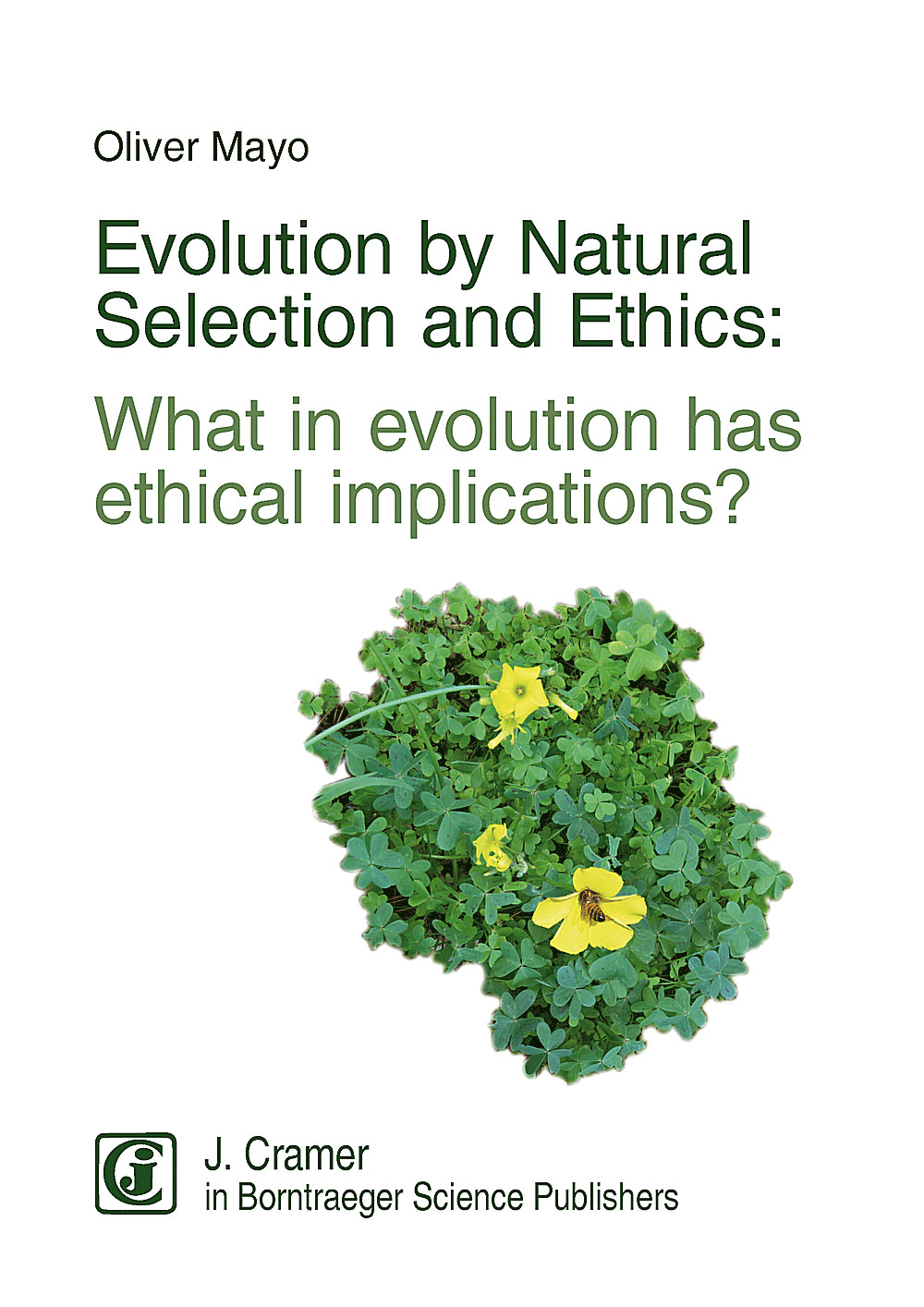Synopsis top ↑
This book reviews evidence that virtues and particularly vices have
been and can be subject to a natural selection process and how, if at
all, Brunetière’s theory in particular holds up today.
In the early 1890s, renowned French writer and critic Ferdinand
Brunetière, after reading the most recent studies of evolution by
natural selection, attempted to assess whether the theory of evolution
by natural selection was in accord with Christian morality, that is
whether revelation, which is considered the basis for “right” conduct,
was consistent with scientific thought. He then concluded that it was.
A century and a quarter of additional research into this topic later,
and the theory of natural selection confirmed, the question of whether
evolutionary theory can provide a basis for morality consistent with
revelation is asked anew by Oliver Mayo: Can anything but revelation
provide a basis for ethics?
The author addresses both scientists and a readership interested in
the connection between evolution an ethics, with general interest in
evolutionary theory from the perspective of science and ethics.
